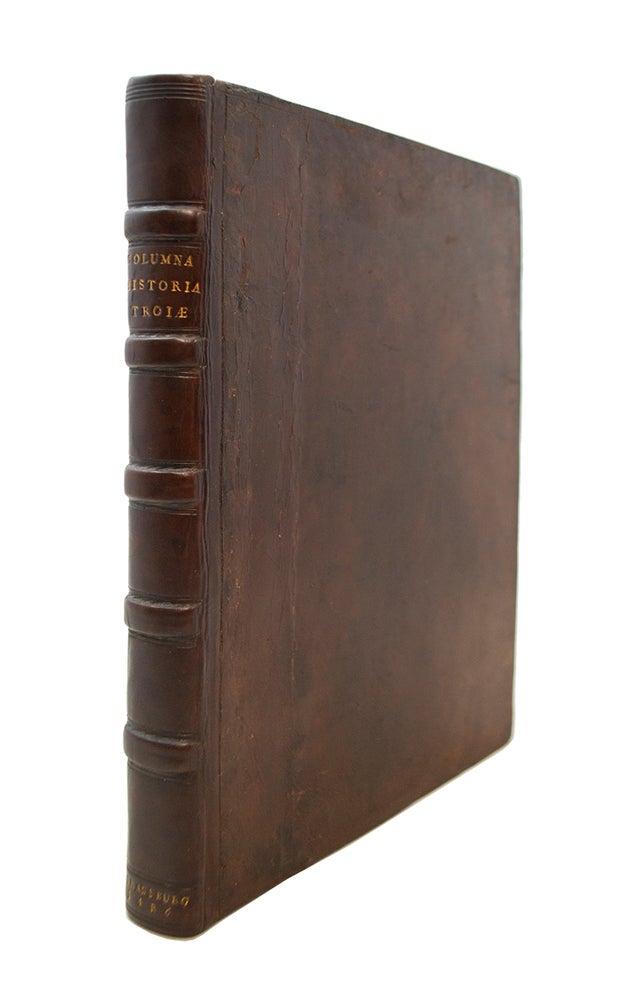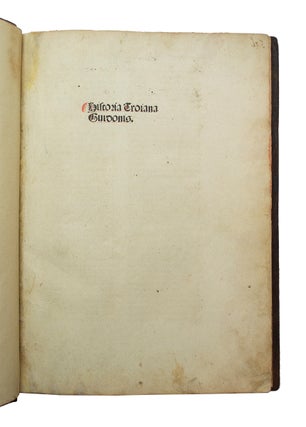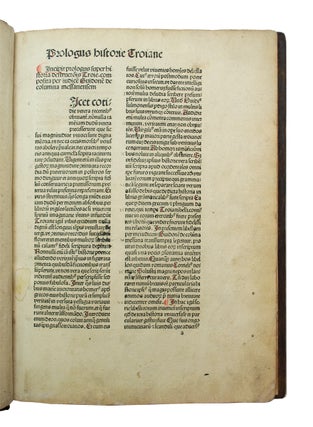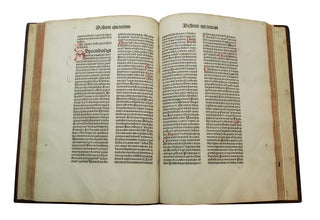Source for Caxton’s "Recuyell of the Histories of Troye," the First Book Printed in English
Historia Destructionis Troiae.
Strassburg: Georg Husner, 1486.
Full Description:
COLUMNA, Guido de. Historia Destructionis Troiae. [Strassburg: George Husner, October 9, 1486].
Sixth edition overall and second edition printed in Strassburg. Folio in sixes (11 1/16 x 8 inches; 280 x 204 mm.). Unpaginated. Eighty-eight leaves, complete. Printed in double column, 43 lines, gothic letter, rubricated throughout in red.
Early calf, rebacked to style. Spine lettered in gilt. Edges dyed red. Newer endpapers. Leaves with some minor soiling throughout. Occasional small professional repairs to tiny closed tears at bottom margin. A small wormhole to blank fore-edge margin, not affecting text. Overall a very good copy with generous margins.
This prose version of the story of the Trojan War, the most popular medieval version, was based on Benoit de St. Maur’s Roman de Troie. In it, Achilles and Hector became complete chivalric heroes, and Thersite a dwarf; the walls of Ilium were of marble and the palace of Priam was as splendid as any enchanted castle in the tales of chivalry. The death of Ulysses bears strong resemblance to an oriental fiction: Circe had born a son to Ulysses after his departure from her enchanted island; this son, having learned the secret of his birth, goes in search of his father, and not recognizing him, kills him by mistake, thus fulfilling an old prophecy. One of Sophocles’ lost plays, according to Casaubon, the French classical scholar, had this same plot.
Guido of Columna’s work was the principal source for Caxton’s Recuyell of the Histories of Troye, the first book printed in English. Columna was a troubador at the court of Friedrich II and later of Edward I of England. The original Greek manuscript of this romanticized biography of Alexander the Great was discovered around 950 by Leo Archiprebyter during a diplomatic mission to Constantinople. After transcribing it he made a Latin prose version for his patron, Duke John III. His version has had the widest influence on the subsequent transmission of the Alexander romance. Husner’s Strassburg editions are interpolated and enlarged from Leo’s translation.
Goff C 733. GW 7230. Hain-Copinger 5509. Proctor 605. Polain I, 1131.
HBS 68563.
$9,000.
Price: $9,000.00
Item #68563




